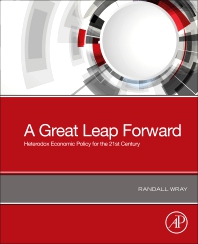
Publications
The Financial Crisis Viewed from the Perspective of the “Social Costs” Theory
This paper examines the causes and consequences of the current global financial crisis. It largely relies on the work of Hyman Minsky, although analyses by John Kenneth Galbraith and Thorstein Veblen of the causes of the 1930s collapse are used to show similarities between the two crises. K.W. Kapp’s “social costs” theory is contrasted with the recently dominant “efficient markets” hypothesis to provide the context for analyzing the functioning of financial institutions. The paper argues that, rather than operating “efficiently,” the financial sector has been imposing huge costs on the economy—costs that no one can deny in the aftermath of the economy’s collapse. While orthodox approaches lead to the conclusion that money and finance should not matter much, the alternative tradition—from Veblen and Keynes to Galbraith and Minsky—provides the basis for developing an approach that puts money and finance front and center. Including the theory of social costs also generates policy recommendations more appropriate to an economy in which finance matters.

